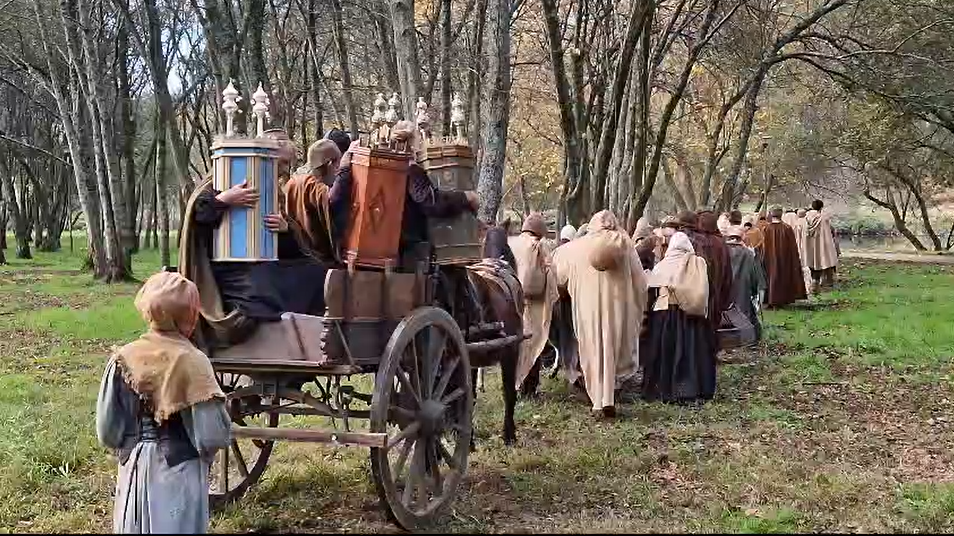Getting your Trinity Audio player ready...
The abduction of 2,000 Jewish children following the expulsion of Jews from Spain in 1492 remains an unresolved chapter that has haunted the Jewish community for centuries. Little is known about the disappearance of these children or their lives on the island where they were forcibly relocated.
Now, over 500 years later, a new film aims to shed light on the episode and uncover the truth about the children taken from their Jewish families. Scheduled for release in May, the film is a collaboration between the Fundacion HispanoJudia in Madrid and the Jewish community of Porto, Portugal.
Trailer
(Video: Courtesy)
The movie focuses on the fate of these 2,000 Jewish children from Spain, who were separated from their families after they fled to Portugal following the expulsion from Spain. Historical accounts suggest the children were taken after their families failed to pay taxes imposed by Portuguese authorities as part of sanctions against debtors.
The children were exiled to Sao Tome, an island about 7,500 kilometers (4,660 miles) from Portugal. Sparsely inhabited and with harsh living conditions, many children endured the long journey and survived on the island but the ultimate fate of most remains unknown.
"This film brings to light one of the most devastating moments in Jewish history when our people were kidnapped by enemies, and many never made it home," explained David Hatchwell Altaras, president of the Fundacion HispanoJudia in Madrid.
“Sadly, we are witnessing a tragic repetition of history as the global Jewish community once again finds itself rallying for our kidnapped people. We hope this film, dedicated to the ongoing efforts to free our captives, highlights the importance of understanding our history to better navigate current events.”
Michael Rothwell, director of the Jewish and Holocaust Museums of Oporto, added: "Especially during the celebration of Hanukkah, we are reminded of our responsibility as Jewish leaders to document and share our history. We are a people with a long memory, and it is essential that we learn from our past.”
How did you gather historical information about a story with so few records or documentation?
"The film is a 30-minute documentary. The script was produced by the historical research center of the Jewish community of Porto. Each scene is based on historical records published by Portuguese chroniclers of the time (Garcia Resende, Rui Pina, Valentim Fernandes), and also by Jewish leaders of that time (Isaac Abravanel, Samuel Usque, Shlomo Ibn Verga, Rabbi Gedalya ibn Yahia).”
Do you know what happened to the children taken to the island?
"Historical records suggest that they migrated to Brazil and Latin America in general, because from the 16th and 17th centuries onwards the island became a major trading center for Brazil and most of the merchants were New Christians. The influx of New Christians was so great that this fact infuriated the Portuguese monarchy.”
Get the Ynetnews app on your smartphone: Google Play: https://bit.ly/4eJ37pE | Apple App Store: https://bit.ly/3ZL7iNv
Rothwell stressed that the film is dedicated to the Gaza hostages, noting: "The feelings of families today were experienced by Spanish families at that time, with the aggravating factor that the kidnapped were all very young children.”
“In the Spanish case, these were young children, which heightens the tragedy. The film serves as a poignant reminder of the immense pain of losing a family member or having them taken captive, with no knowledge of their fate."






